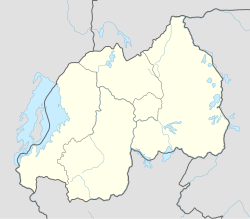This article relies largely or entirely on a single source .(August 2024) |
Mareba | |
|---|---|
Village and sector | |
| Coordinates: 2°14′50″S30°04′08″E / 2.24709°S 30.06886°E | |
| Country | |
| Province | Eastern Province |
| District | Bugesera District |
| Area | |
| 55.91 km2 (21.59 sq mi) | |
| Population (2022 census) [1] | |
| 29,266 | |
| • Density | 523.4/km2 (1,356/sq mi) |
| • Urban | 3,044 |
Mareba is a village and sector in Bugesera District, Eastern Province in Rwanda, with a population of 29,266 (2022 census) and an area of 55.91 square kilometers.
